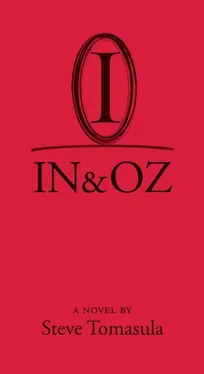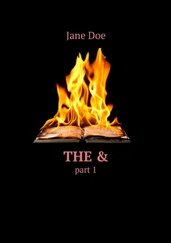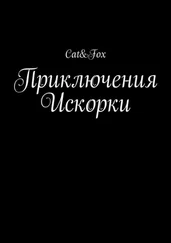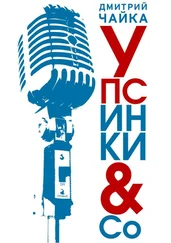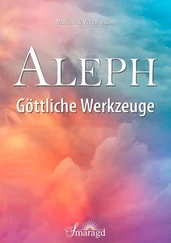Art had nothing to do with it. Even after one lawyer accused him of that crime, Mechanic maintained that art had nothing to do with what he did. It was simply that having grasped the essence of Auto, he could no longer participate in the lie that was Not-Auto, the lie that blindered people from the beauty of the Truth that resided beneath the false beauty they mindlessly used to tool about their work-a-day lives. And if making them see meant making their cars inoperable, in the way that a hammer was most itself when broken, so be it.
He had come to that realization the time one of his own hammers broke while he was using it to beat the fender of a customer’s car into a shape that could never be taken for granted again. During his entire life he had taken that hammer for granted, even though it was the one true heirloom he had inherited from his father’s father’s father, by way of his father’s father, via his father. When he needed to tap free a cotter pin, he would reach for the hammer without even thinking, use it, then return it to its place with no more notice than he would give his lungs during a breath. But once the hammer broke, he saw that it was only when broken that he missed it, sorely missed it, which is to say, see its hammerness for what it was. And so it was with his?—
The next customer who called it “Art” had brought in a car with a leaky radiator. When he returned at the appointed hour to retrieve his automobile and stood before it, staring at the radiator, now in the space that normally held the windshield, Mechanic reached behind to his workbench and gripped his broken hammer in case he had to fight the man off. Too many times before, what should have been a simple exchange of payment for car keys turned into a scene of bewilderment, even rage. The dogs had learned to sense strong emotion and were already going wild in their cage, so this time Mechanic was ready.
What he thought was a growl gradually became a hissing — what? — laughter? Was the man laughing at his work? Mechanic could feel anger draw him to the fight. Come on, come on, he thought, just waiting for the man to turn on him with his fists. He might have let him have it right there from behind if the man hadn’t been so much more frail than himself: bony shoulders, scrawny neck, a bald spot shining out through a head of long white hair. When the man finally did turn to Mechanic, though, he said, “You, sir, are a genius.”
Mechanic tightened his grip on the hammer.
Wiping pale, blue eyes, the man continued, “All my life I have driven this car without once considering the beauty, and functionality of its radiator, a metal honeycomb tirelessly cooling my auto’s engine in summer, supplying heat to comfort my body in winter. But now I shall never drive again without first appreciating its handiwork, and yours, and all of those whose labor has helped make my locomotion and comfort possible. All my life I have longed for another who would understand, who could understand, the true beauty of art, and the world, instead of those lies and illusions we are expected to live by, and now, having discovered a single honest man, I feel I can die at peace.”
Needless to say, whatever name the force goes by that reunites the salmon with its place of birth, that allows migrating ducks to hold their V; whatever marries sound to moving pictures, or print to page, had also brought together Mechanic and this man. Indeed, even before this meeting, they learned, they had been next-door neighbors, though not in the usual dimension. For this man, a Photographer, lived in a house that doubled as a camera and was built on the highest point of IN, the top of the bridge that sutured IN to OZ, the very bridge that Mechanic lived beneath. Mechanic, for his part, was shocked to learn that someone lived above him. Having spent his entire life under this bridge, hearing the decrescendo of tires as cars slowed to pay the toll that was required at its midpoint, then the crescendo of tires as those cars sped off again, the sound had been a kind of nature to him, the way the rhythmic rush, then hiss of waves must sound to villagers who live out their days beside an ocean. Learning that his sky contained a man couldn’t have been more startling had he been a tourist eating a hot-dog at a bathing beach when Venus rose from its sea.
After these successive shocks — first the shock of seeing clearly the essence of Auto, then the shock of discovering that the sky contained a man, he began to notice a lot of things he never had before. Like the dogs. Whenever a fight broke out between him and a customer, the dogs invariably took his side. That is, they were loyal to him, he saw, though he had never done anything to earn their loyalty, and this realization filled him with memories of his dead parents. As though waking from an emotional hibernation, he began to miss them, then human companionship in general, which he had become estranged from since their burials. When Photographer began dropping by, inviting Mechanic for a drink in one or another of the standard bars that dotted IN, he began to understand that this was what humans did. When Photographer didn’t show up for several days, Mechanic even took the initiative himself, calling on Photographer in his camera-house on the top of the toll bridge, and it felt right. Better than being alone. Seated there, guest-beer in hand, he’d gaze upon the Essence of OZ Building, shimmering mirage-like in the distance as Photographer went on about his own life, and loves, and of course his work.
Once he had been a filmmaker, Photographer said on one of these occasions. But the artificiality of time in films had sickened him, as did the relentless march of film through a projector, always in the same direction, and always moving at a speed that made it impossible for a person to truly see.
“So I started making films that consisted of only one frame,” he said. “But audiences howled, ‘These aren’t films! They’re photographs!’” Photographer spat out the window at the stream of cars passing beneath his house on the roadway of the bridge. “Philistines! Lemmings! Never did they say, this is a bad film. Never do they tell you, this is the work of a bad mechanic. Am I right? No! Instead they howl this isn’t a film! Or this isn’t a mechanical repair! Am I right? Am I right?”
Mechanic always felt humbled by Photographer’s learning and ability to seize on the precise essence of a problem.
“So all right,” Photographer continued, “I am but one man. They are the world. Yet rather than acquiesce to the making of what proctologists, accountants, and cheerleaders on Friday-night dates opined to be ‘art,’ I gave up films completely and began making photographs. For awhile, I took great joy in looking through the viewfinder, changing the world by the way it was framed. I fell under the spell of framing. Believing as I did at that time that the essence of photography lay in the selection of what was left out, I began to experiment with ever-smaller frames, seeing more by including less until not even a microscope sufficed as lens. Looking through one at a hair on a gnat’s ass — a tree, not the forest, so to speak — I came to see how even this was a forest of atoms. That is, I saw how the photos themselves, the mere flotsam of looking, were what most people wanted in a photograph while the photos were the very thing that arrested looking. So I began to take pictures without any film in the camera, which was finally satisfying, and led to this,” he said, indicating the house around them: a walk-in camera obscura which focused light on a point where Photographer would stand, eyes shut, letting the image that came in through the window that was a lens project itself onto his closed eyelids.
Читать дальше
